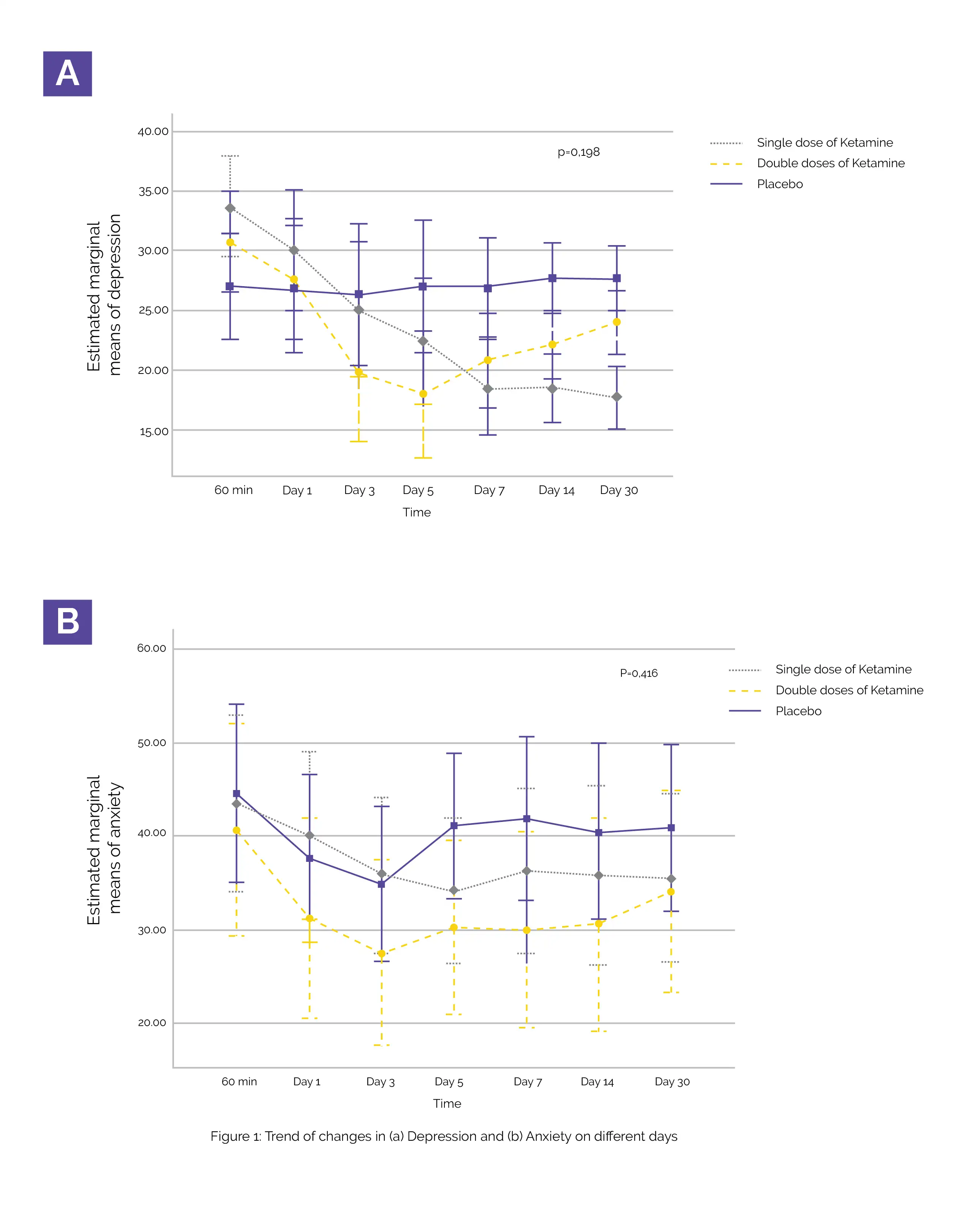Categories
Change Password!
Reset Password!


While both single and double doses of Ketamine display positive effects on depressive and anxiety symptoms, there is no substantial advantage with the double-dose regimen in patients with bipolar mood disorder.
According to the findings of a recent clinical trial, the administration of intravenous Ketamine (glutamate receptor modulator) holds the potential for alleviating depressive symptoms in individuals with bipolar disorder. The results indicate that using a double dosage of Ketamine does not result in more significant improvements compared to a single dose.
Given the involvement of glutamatergic system dysfunction in bipolar depression, Ketamine has emerged as a promising option alongside mood stabilizers. However, the optimal dosing strategy remains uncertain. Hence, researchers sought to examine single- and double-dose injections of Ketamine in 30 participants (18 females, 12 males, mean age 36.8 ± 7.9 years) diagnosed with bipolar I and II disorders.
The study was conducted as a randomized, double-blind controlled trial. Divided into three groups, each receiving different treatment regimens, the patients were closely monitored throughout the trial period. The groups consisted of those receiving a single intravenous dose of Ketamine (0.5 mg/kg) and placebo with a 3-day gap, those receiving 2 doses of Ketamine (0.5 mg/kg) within the same interval, and those receiving 2 placebo injections.
The individuals were thoroughly evaluated for symptoms of depression, anxiety, and mania at different time intervals. These intervals encompassed assessments conducted prior to the administration of the injection, one hour after the injection, on the first, third, fifth, seventh, and fourteenth day following the injection, as well as at the conclusion of the initial month. The evaluation utilized recognized scales including Hamilton Depression Rating Scale, Beck Anxiety Inventory, and Young Mania Scale. Rigorous statistical analysis, including ANOVA and Repeated measure tests, were employed to scrutinize the collected data.
Results revealed notable improvements in depression and anxiety levels across both single and double-dose Ketamine groups over time, indicating the potential efficacy of Ketamine in alleviating depressive symptoms in bipolar patients (Figure 1)

Intriguingly, mania levels also exhibited profound changes within the same groups as well as the control group. However, when comparing the three treatment groups, there were no statistically significant differences observed in depression, anxiety, and mania scores. Importantly, the trial did not uncover any significant adverse effects of Ketamine administration during the study period, suggesting its relative safety in this context.
In conclusion, this study sheds light on the potential of intravenous Ketamine administration as a complementary treatment for bipolar depression. While both single and double doses of Ketamine demonstrated positive effects on depressive and anxiety symptoms, no substantial advantage was witnessed with the double-dose regimen. This research contributes valuable insights into refining the application of Ketamine in improving bipolar mood disorder.
Iranian Journal of Psychiatry
A Comparison between Single and Double-Dose Intravenous Ketamine Administration in Bipolar Mood Disorder: A Double-Blind Controlled Clinical Trial
Ali Talaei et al.
Comments (0)